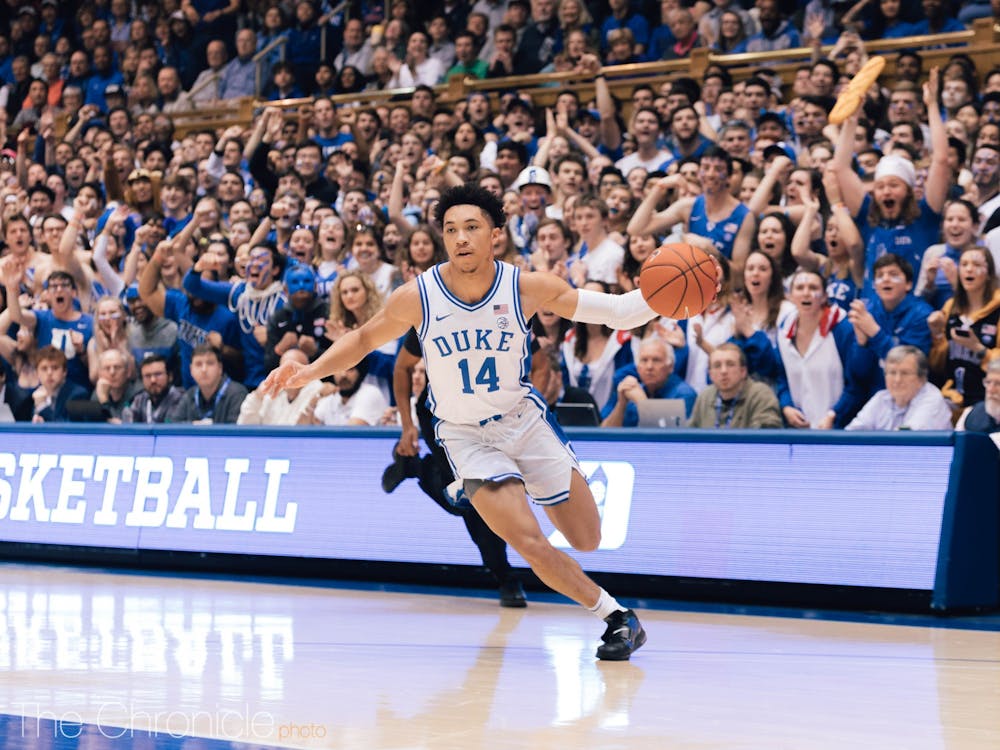The NCAA announced Wednesday that all current winter athletes will receive an additional year of eligibility, no matter how many games they play this season. As with its decision for fall sport athletes, this is great news for current players, and a continuation of a horrible trend for non-Power 5 schools.
Overall, an extra year makes some sense for winter athletes. After a summer of countless high-profile transfers, the 2020-21 season was already going to be a bit odd. And though COVID-related obstructions to a normal season should be less prevalent as time goes on, the winter seasons are already beyond normalcy.
But these problems aren’t evenly affecting schools across the board—Duke is in a much better position to weather the storm than programs like High Point or Meredith. Group of 5 (G5) and mid-major schools are already under extreme financial stress from the pandemic, and allowing players to not count against scholarship limits will end up stretching those athletic budgets past their limits.
There’s a lot of G5 and FCS schools whose entire athletic budgets have been provided by the revenue earned from “buy games.” Now that money is being taken away due to largely conference-only schedules across college football, while a few more scholarships are being added to the rolls. A scholarship athlete doesn’t actually cost a university the full price of tuition, but that’s still a lot of money many of these schools simply won't be able to afford. That’s part of the reason why NCAA Chief Medical Officer Brian Hairline told USA Today that “we're probably at a place where 20 percent to 30 percent of Division III schools may not survive this pandemic.”
For Duke, the extra eligibility provides some minor help for the next couple of years. For men’s basketball, Jordan Goldwire and Patrick Tapé each receive the possibility of another year to continue playing in Cameron. Goldwire would especially be a good fit to return for an extra year, with Duke bringing several high-profile wings and (as of yet) no guards into a team bereft of upperclassmen for 2021.
On the women’s basketball side, the additional year should help the team maintain a passable level of play while head coach Kara Lawson and her staff's already-strong recruiting starts bringing the talent up to national contention. The 2022 WNBA Draft would be the earliest any Blue Devil would be in draft consideration. Until then, Jade Williams and Jayda Adams can continue to play.
Whether the extra year actually helps or hurts the Blue Devil women’s basketball team is a bit of a complicated question, however. Despite the continual advancement of women’s basketball, there still remain just 144 roster spots in the WNBA (compared to 450 in the NBA). It’s an uphill battle for many second-round picks to make rosters. Allowing women’s basketball players a fifth year will keep a lot of high-quality talent in the collegiate game, which could end up hurting Duke in the end.
While it will certainly be interesting to see how Blue Devil teams are affected by both this legislation and the forthcoming decision on transfer eligibility, what's most significant about recent NCAA decisions is how their effects trickle down. There were a lot of questions back in the spring about how smaller schools would fare in the pandemic. So far, the situation looks dire.
Get The Chronicle straight to your inbox
Sign up for our weekly newsletter. Cancel at any time.

